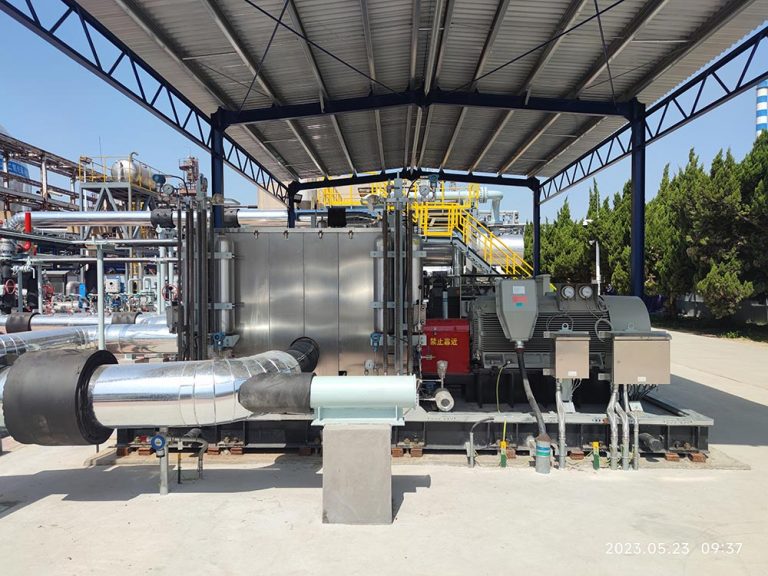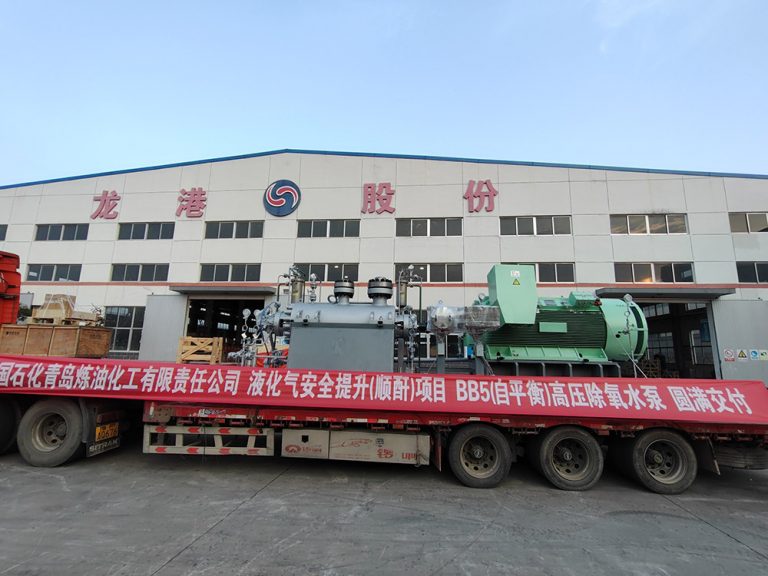You might be familiar with API pumps, might not fully understanding their significance or purpose. This blog delves into the realm of API pumps by explaining their definition and importance in today’s technology landscape. At the same time, it also introduces the types available and factors to keep in mind when choosing the appropriate pump for your requirements. Let’s delve deeper into demystifying the role played by these components in various applications.

Knowing What Is API Pumps and Their Importance
Before we explore the categories of pumps out there, let’s start by grasping the essence of what API pumps entail. API pumps are pumps that comply with the guidelines established by the American Petroleum Institute (API). These guidelines hold significance within the realms of oil, gas and petrochemical industries, ensuring that pumps are crafted, produced and validated to endure the rigorous conditions prevalent in these sectors. The API standards primarily revolve around a pump’s structure, design and its capacity to withstand temperatures and pressures.
Definition of API Pumps
API pumps are designed to withstand the most unfavorable working conditions so that reliability as well as durability is matched by giving due consideration to safety in hydrocarbon and aggressive fluids at very high temperature as well as under pressure with a material such as steel and special alloys due to their resistance in extreme conditions as common in serious industrial applications in which failure might lead to dramatic consequences.
The Role of API Pumps in Modern Technology
API pumps, which have wide ranges of applications in general are much more relevant to the petroleum industry for purposes, such as extraction and refinery processes and transportation of materials in drilling rigs and pipelines under high pressure. API-compliant pumps in chemical plants are deployed because they do very effective work with corrosive substances under unfriendly conditions. Such pumps will help raise the effectiveness of operation and further advance safety considerations for these operations.
Benefits of Implementing API Pumps
Utilizing API pumps offers a range of advantages due to their nature that plays a key role in cutting down downtime and maintenance expenses. They are crafted to endure conditions effectively reducing the likelihood of breakdowns. The rigorous testing procedures they undergo guarantee compliance with industry standards. Additionally, the functionality of API pumps extends to emission control making them vital in scenarios where environmental guidelines stringent. Although they may entail an upfront cost the enduring efficiency typically results in noteworthy financial savings over time.
Exploring the Four Essential Types of APIs
Now that you grasp the basics of API pumps enough, let’s delve into four distinct types of APIs categorized by their accessibility levels. Each variant serves a unique function and is tailored for specific scenarios, making it crucial to discern the disparities when selecting the most suitable one for your application.
Open APIs
Public APIs or open APIs are accessible to everyone with restrictions and are also referred to as external APIs. They usually involve a registration process and authentication through an API key. Are meant to foster creativity in new applications and connections. Open APIs are generally simple to utilize since they are designed for consumption. However, they may come with usage terms and restrictions like rate limits. For instance, some APIs may provide access while others offer a basic free level with fees for increased usage.
Internal APIs
Private APIs, also simply called APIs, are those designed for use inside the boundary of your organization to share data and tools across departments or teams and are not accessible to any external party, so that operations are smooth and data is more integrated across the company, such as linking human resources and accounting systems, better and more cohesively than when not meant for public consumption.
Partner APIs
Partner APIs are custom-made for collaboration between your organization and trusted partners—not completely public or private. Tailored to grant access to particular features and data pertinent to the partnership dynamics. For example, a business might offer an API to a supplier for shipment tracking or to a marketing ally for customer data access. These APIs facilitate. And ensure smooth sharing of information.
Composite APIs
With APIs for integration solutions, instead of separately requesting various functionalities from different APIs, this streamlines the process by consolidating the various required data access points into a single entry point for easier consumption by applications.
Key Considerations When Selecting API Pumps
When you’re choosing an API pump for your needs and requirements, it’s important to take into account factors, such as operating conditions, reliability, budget limitations and customization requirements. By evaluating these aspects, you can select a pump that improves the efficiency and longevity of your system.
Operating Conditions
The nature of the fluid, the temperature, and pressure of operation, and the environment in which the pump is placed determine the mode of operation of the pump. API pumps are very efficient in pressure and high temperature conditions because they have been designed to operate under these conditions effectively. In the handling of hazardous liquids, the capability of the components of the pump should be ascertained. Understanding these factors is important in the selection of a pump that will be able to handle the demands of your application.
Reliability Requirements
Reliability is a major concern when the failure of a pump might cause serious consequences. API pumps are designed to be reliable, considering that every detail is thoroughly tested for consistency in performance. The strong construction and modern seals minimize leakage and extend the life of the pump. If your operations need steady and continuous performance, a reliable API pump will help you avoid costly downtime.
Budget Constraints
When choosing a pump, your needs and the budget at hand is a factor to consider in the decision-making process. The upfront cost of API pumps can be higher. They often offer better value in the long run because of their durability and reduced maintenance requirements. If you have constraints to consider opting for non-API pumps with a lower price tag might seem tempting. However, it’s crucial to factor in potential maintenance and replacement expenses. It’s essential to assess the overall lifetime costs associated with your pump purchase rather than solely focusing on the initial outlay.
Customization Needs
When it comes to your application, having needs to consider customization is key. Custom pumps without APIs are generally more adaptable in their design and setup enabling adjustments to be made to suit requirements. On the other hand APl based pumps are structured to adhere to specific industry norms and may lack flexibility. If you need functions, it’s crucial to evaluate which type of pump. API ornon-APII. Aligns better with your needs.
Yantai Longgang Pump Industry Co., Ltd.: Your Reliable API Pump Supplier
Yantai Longgang Pump Industry Co., Ltd. is a pump manufacturer that boasts expertise across sectors of the industry. Their product line includes pumps with API standards to showcase their dedication to excellence and dependability. They specialize in creating and manufacturing pumps tailored to the requirements of industries, such as the petrochemical, oil and gas sectors. With research and development along with production capacities, Yantai Longgang can personalize products to cater to your unique requirements, vowing that their pumps adhere to performance quality and post-sales service benchmarks. Their commitment lies in delivering notch and effective services to their clients.

FAQs
Here are some common queries people often ask about API pumps.
1. What is the main difference between API and non-API pumps?
API pumps follow the guidelines established by the American Petroleum Institute, designed to handle high temperatures and pressures with a strong construction focus in mind. Non-API pumps do not have to comply with these standards and are generally seen as more budget-friendly and flexible alternatives.
2. What are some common applications for API pumps?
API pumps are frequently employed in industries such as oil and gas well as petrochemicals due to their ability to endure the harsh conditions of high pressures and temperatures along with corrosive substances found in those settings They also play a significant part in chemical processing facilities.
3. When should I use a composite API?
You should use a composite API when you need to combine two or more APIs to perform related or interdependent operations, providing a unified view of data from different sources.
4. What are the key factors to consider when choosing an API type?
Key factors include the audience, security requirements, functionality, scalability, complexity, performance needs and how well the API type aligns with your business goals.








